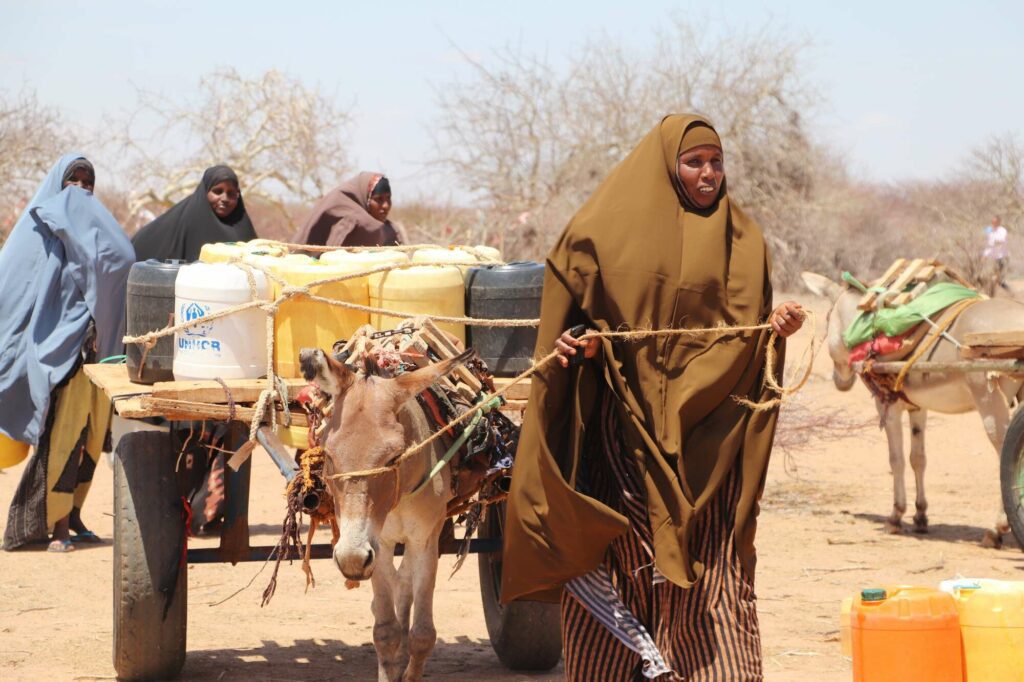By FRED OLUOCH
By MOHAMMED MOMOH
Various African countries, especially the wider Horn of Africa are experiencing unprecedented high temperatures, forcing them to resort to emergency safety measures.
This week, South Sudan decided to shut down learning institutions on a predication that the temperatures are likely to hover around 42 degrees celsius in the coming two weeks. It is an unusual forecast especially since South Sudan’s usual temperatures during this season go up to 35 degrees celsius during the day.
Meteorological departments in the region say the high temperatures are due to moving winds towards the African side.
“The extreme heat being experienced in the country is attributed to the movement of global winds across the equatorial region, coupled with the movement of the sun towards the equator,” said Ugandan weatherman on Wednesday.
Read: Why Kenya is experiencing hot weather
Equinox officially began on Wednesday. This is the period when the sun directly hits the equator, meaning that the length of days and nights are equal.
Advertisement
It is the period when both the northern and southern hemispheres experience equal daylight. In the region, South Sudan has recorded one of the highest temperatures in the region. And the government instructed parents not to allow children to play outside and asked them to report any signs of exhaustion, according to a notice issued by South Sudanese Minister for Health, Yolanda Awel Deng.
“The Ministry of Health and the Ministry of Environment and Forestry will continue to monitor the situation and inform the public accordingly,” Mr Deng said.
The country’s Undersecretary in the Ministry of Health Dr Ader Macar Aciek warned that extended periods of high day and night-time high temperatures have created a cumulative physiological stress on the human body which could worsen respiratory and cardiovascular diseases, diabetes and renal disease.
According to the South Sudanese Ministry of Environment and Forestry advisory, Juba and most parts of South Sudan are experiencing a heat wave. According to the ministry, high temperatures of between 41 and 45 degrees Celsius are expected in the coming two weeks in South Sudan where there are already cases of death associated with excessive heat being reported.
According to scientists, the recurring heatwaves in the eastern African region are set to become frequent, longer and more intense. The World Meteorological Organisation shows that January of this year has been recorded as the hottest month on record so far worldwide.
In Kenya, unlike the usual Nairobi average temperatures of about 24 degrees celsius, the December-January-February period recorded higher temperatures of 27 degrees Celsius and above.
Counties such as Nairobi, Embu, Meru, Kiambu and Murang’a in Kenya are expected to experience temperatures of 38 degrees Celsius, while the normally dry areas of Northeastern Kenya will experience 39 degrees Celsius and above.
Read: Rising temperatures threaten beef farming in sub-Saharan Africa
According to the Climate Prediction and Applications Centre (ICPAC) — a body of the Intergovernmental Authority on Development (Igad) —high temperatures of above 32 degrees Celsius are expected over most parts of South Sudan. A few regions in western Ethiopia and northern Kenya will also experience high temperatures.
Moderate to high temperatures between 20 to 32 degrees Celsius are expected in most parts of Tanzania, Uganda, Kenya, Somalia, Djibouti, Eritrea, Ethiopia and central to southern Sudan. ICPAC says warmer than usual temperatures are predicted over most parts of the region with the exception of northern Sudan.
Those winds blowing onto Africa are helping raise the temperature. In Nigeria, the Nigerian Meteorological Agency (NiMET), warned on February 13.
More than a month later, officials said this week health centres were reporting people coming in with complications related to high temperatures.
NiMET had warned of dehydration, heatstroke, fainting, heart rash, a slight fever, dry lips, weakness of the body, chicken pox and measles.
Daily temperatures climbed above 41 degrees Celsius in the North and more than 39 degrees Celsius in the South, the Nigerian Weatherman indicated.
NiMET said on March 14 that this period of the year is not normally supposed to be hot as it is and blamed the heatwave on emissions, bush burning and gas flaring.
Cities most hit by the consequences of the heat wave are Abuja, Akure, Lagos, Warri, Asaba, Owerri, Umuahia, Obudu, Calabar, Uyo, Osogbo Benin, Ibadan, Enugu, Ilorin, where sunstroke, muscle cramps, and heat exhaustion had become prevalent.
Read: July to be hottest month on record as UN warns of ‘global boiling’
NiMET reports also that Yenogoa, Port-Harcourt, Makurdi, Lokoja, Lafia, Ado, Ebonyi states, and some parts of Ekiti, Ondo, Kwara, Anambra states are highly likely to experience heat stroke or sunstroke also.
Prof Ayo Akande, a former National Chairman of the Association of Public Health Physicians of Nigeria, advised people to stay under shade or remain indoors with cooling systems like an air conditioner.
“The Greater Horn of Africa region, which had been experiencing long-term drought, suffered substantial flooding in 2023, particularly later in the year as heavy rains associated with El Niño and the positive Indian Ocean Dipole became established.”
This erratic weather has gone to places like Zimbabwe where crops have largely failed and the Niger delta where the lake that once fed communities is drying up.
Source link : https://www.theeastafrican.co.ke/tea/science-health/african-countries-facing-unprecedented-high-temperatures-4565902
Author :
Publish date : 2024-03-23 07:00:00
Copyright for syndicated content belongs to the linked Source.
